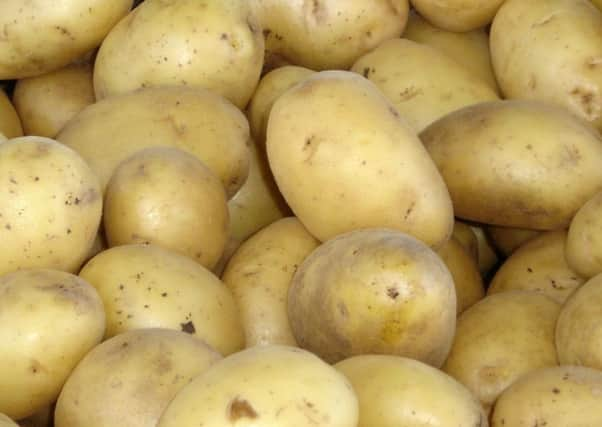Radical proposals could reinvent potato production


Yesterday on Hallyards farm near Meigle, Stuart Wale, potato consultant with Scotland’s Rural College, produced a series of radical proposals aimed at reducing growing costs and improving profitability in a sector which now has fewer than 400 growers in Scotland.
Growers should consider whether they need to plough land pre-potatoes, he stated, saying that the UK was unusual in carrying out this costly and time-consuming work. While ploughing was often a good way of burying surface rubbish, the cost of doing it was considerable.
Advertisement
Hide AdAdvertisement
Hide AdWith the majority of Scotland’s potatoes being grown on light loamy soil, he questioned the need to turn over hundreds of tonnes of soil per acre, saying that experimental work in the past two years showed the no plough option had produced similar yields to traditionally ploughed areas.
Wale also questioned the practice of burying stones as deeply as is the current practice when pre-planting de-stoning work is carried out. Again, recent experimental work had shown that shallow de-stoning which was much less expensive, could produce a perfectly suitable end result. He did however qualify that comment saying it depended on the stone content of the field as well as the potato variety grown.
While crops such as cereals have really benefitted in recent years through modern technology similar advances in growing potatoes has not happened, but Wale was confident that there would be huge potential going forward with new technology but admitted that changing, for example, cultivation techniques to cope with differing soil types in a field was more difficult to manage.
Although the past three wet growing seasons has seen little use being made of irrigation equipment, Wale described the current spray gun method of applying water to crops as being “pretty imprecise” with more development work being needed in this area.
He was, however, very positive about a fairly simple piece of machinery which has just come on to the scene and which has the capacity to reduce run-off of excess water.
The Wonder Wheel produces a series of depressions down the furrows and these form mini-reservoirs to which the plants have easy access.